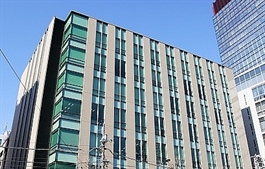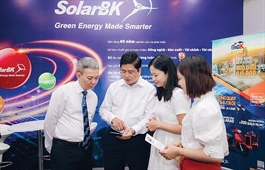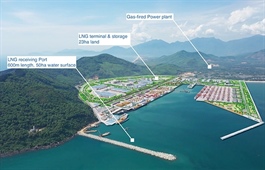Flexible origin rules will bring benefits to local plastic producers
Flexible origin rules will bring benefits to local plastic producers
Flexible rules of origin in the European Union-Viet Nam Free Trade Agreement (EVFTA) will help local plastic enterprises take full advantage of preferential tariffs when exporting to the EU market.

Ngo Chung Khanh, deputy director of the Multilateral Trade Policy Department under the Ministry of Industry and Trade, says this trade deal allows local plastic producing firms to use up to 50 per cent of non-originating materials in production.
This advantage would create favourable conditions for Vietnamese plastic products to enjoy preferential tariffs in the EU market, he said.
At present, domestic raw materials have met only between 15 per cent and 35 per cent of local demand. Viet Nam has more than 2,000 plastic enterprises, of which 84 per cent are based in HCM City.
Vietnamese plastic products in the EU market do not face an anti-dumping tariff of between 8 per cent and 30 per cent like plastic products from some other countries.
According to the Import-Export Department under the Ministry of Industry and Trade, the stable export growth of the domestic plastic industry in recent years has shown the high import demand of plastic products in the EU and Japan markets, especially plastic pipes and bags. Those are traditional markets in which local businesses are keen to increase market shares.
Of which, the local plastic packaging businesses have increased their exports to the EU, largely due to the dual benefits of prices and import tax incentives.
In addition, the domestic plastic industry has paid attention to increasing exports of high-tech plastic raw materials to gain a higher export value compared to normal plastic products, reported the Dau tu (Vietnam Investment Review) newspaper.
An Phat Holdings Group is one of the largest domestic plastic producers that has invested heavily in expanding production in recent years. It has set a goal of exporting biodegradable plastic packaging products to demanding markets like Europe, Japan, and the US.
According to the Viet Nam Plastics Association, in the first half of the year, Viet Nam’s plastic export value reached US$1.62 billion, a decline of over 5 per cent compared to the same period last year.
The nation’s recent signing of new free trade agreements, including the EVFTA effective on August 1, are expected to offer many opportunities for local enterprises to boost their exports of plastic packaging products.
It is anticipated that foreign partners will gradually shift orders from China to Viet Nam in an effort to capitalise on cheap production costs and to enjoy export tax incentives to Europe.
Last year, the country’s plastic export value reached a total of $3.44 billion, an increase of 12.9 per cent compared to 2018. The General Department of Customs reported that the plastic export value has had an average annual growth rate of about 15 per cent in recent years.
Especially, strong growth was recorded in a number of markets, including Hong Kong (up 63.3 per cent), Switzerland (up 131.3 per cent), India (up 47.6 per cent), the US (up 39.3 per cent) and the EU (up 10 per cent).
























